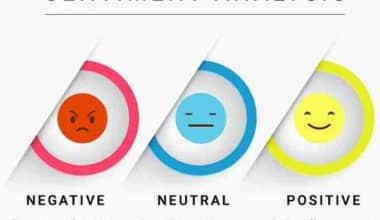Despite the fact that your employees may complain about being told they must work more than 40 hours per week, it is not illegal to do so. In reality, there are no federal regulations prohibiting you from requiring the majority of your salaried employees to work over 40 hours each week. We refer to these workers as exempt employees. Further in this article, you will understand exactly the meaning of exempt, non exempt, and salary employees, non exempt vs exempt employees, and exempt employee rules
Exempt Employees
They are the type of employees defined in the Fair Labor Standards Act (FLSA). Exempt employees don’t get extra pay for working overtime, and they don’t qualify for the minimum wage. This is based on the type of work they perform. Exemption from overtime pay often means that an employee does not have to put in extra time. Nonexempt employees and exempt employees have different rights.
There are two kinds of employees at any job: those who are exempt and those who are not. Exempt employees are those who don’t have to get a minimum wage or extra pay for working over 40 hours in a week. This is because exempt employees are paid a salary instead of an hourly wage, and they have jobs that are considered executive or professional. Exempt employees often get bonuses at the end of the year to make up for the type of work they do and any extra hours they put in.
Different states have different rules, but the FLSA says that employees are exempt if their job falls into one of these categories:
- Professional
- Administrative
- Executive
- Outside Sales
- Computer-related
In addition to the main types of employees who are exempt from getting overtime pay, there may be other types of employees who are also exempt. Thus, this category consists of individuals who work on farms, in movie theaters, at select non-metropolitan radio and television stations, as taxi drivers, and on trains, motor vehicles, and American ships. This list also includes people who sell things or provide services and get their earnings according to how much they sell.
Advantages of Exempt Employees
One of the best things about exempt employees is that you know you’ll always get your salary. Most of the time, salaried workers make more than hourly workers. They may also be able to get extras like retirement benefits, which can include:
- Individual retirement accounts (IRAs)
- 401(k) plans
- Pensions
- Bonuses
- Employer-sponsored healthcare plans
- Paid vacation time and sick days
Disadvantages
The main drawback is that you can’t get extra pay for working overtime. Depending on how your employer thinks, you might have to work long hours to finish a lot of work without any way to get more money or lessen the stress that comes from working so much. In short, your boss has all the power.
Non Exempt Employees
Non-exempt employees have the right to earn at least the federal minimum wage and are eligible for overtime pay, which is one-and-a-half times their hourly rate for every hour they work beyond a standard 40-hour workweek. The federal Fair Labor Standards Act established these requirements. Non-exempt means that an employee makes less than $684 per week. . On Jan. 1, 2020, the $684-a-week minimum wage went into effect. This means that the annual minimum wage is now $35,568. It took the place of the old $455 weekly wage.
Moreover, non-exempt workers:
- Are directly overseen by higher-ups who manage the flow of work.
- According to the FLSA, “bona fide executive, administrative, professional, and outside sales personnel” are not permitted. Teachers, academic administrative staff, and computer professionals are also thought to be excluded from this rule.
Non-exempt workers must obey management without offering suggestions.. Because of this, non-exempt employees tend to work in construction, manufacturing, maintenance, and other jobs that require physical labor or doing the same thing over and over again. Workers on an assembly line are another good example of a non-exempt employee.
Advantages of Non Exempt Employees
- Get 1.5 times their normal pay when they work extra hours
- May find it easier to find work because many of the jobs are less skilled or entry-level.
- FLSA laws often give workers more protection.
- still, be eligible for government benefits (just like exempt employees)
Disadvantages
- Experience and knowledge are usually not as important as they are for exempt employees, so the pay is often less.
- Due to the nature of the role, there may not be the best opportunities to advance in their careers.
- Not qualified for pay if their physical presence is needed but they can’t be there.
Salary Exempt Employees
According to RCW 49.46.010(3), in order for an employee to qualify for an exemption from the Minimum Wage Act as an executive, administrative, or professional employee, they must, in general, pass a test that looks at their duties as well as how they are paid and how much they make.
A non-exempt worker can’t have their pay cut because of differences in the amount or quality of work they’ve done. When an employee’s salary is cut without their permission, the affected worker’s salary no longer meets the standards to be exempt from the Minimum Wage Act since the salary basis requirement has been destroyed.
The safeguards afforded by the Minimum Wage Act, such as overtime pay and paid sick leave, do not apply to salary-exempt employees who are excluded from the act.
Due to the tasks they do at work, the FLSA doesn’t apply overtime pay rules to exempt employees. Instead, they get the minimum salary for a salaried worker each week. Most of the time, employees who work in administrative, executive, or professional roles are not subject to overtime rules because their jobs involve tasks related to running the business. Some outside salespeople and people who work in jobs related to computers are also salary-exempt.
Exempt classifications have different requirements, but one thing they all have in common is that most of the time, employees must use their own judgment to do their jobs. Salary exempt employees don’t get overtime pay, but the company still expects them to work as many hours as they need to do their jobs, even if that means more than 40 hours in a week.
Exempt Employee Rules
Employees who don’t have to pay overtime or make at least the minimum wage are called “exempt.” To have exempt employee status, a worker must meet several exempt rules. Your employee may qualify for an exemption under the executive, administrative, or professional exemption, the computer exemption, the outside sales exemption, or the highly compensated exemption.
To be exempt as an executive, administrative, or professional employee, these employees must follow these rules:
- Salary payment
- Total earnings
- Job Duties
#1. Salary Payment
One of these rules states that an exempt employee gets a salary instead of an hourly wage. This means that they are exempt as long as their monthly base pay is higher than the FLSA minimum threshold, no matter how many hours they work each week.
#2. Total Earnings
For an employee to be exempt, these rules state that they must make at least the amount of money set by the FLSA. The FLSA’s minimum salary threshold changes every year, so it’s important to stay up to date on the rules to make sure employees are getting the right pay. To be exempt in 2020, employees must earn at least $684 per week or $35,568 per year. On the other hand, non-exempt employees make less than this amount.
#3. Job Duties
Exempt employee rules require that only professionals who meet salary and income standards are exempt.
There are three primary classifications for exempt employment duties.
#1. Executive Exemption
To qualify for the executive exemption, an employee must meet the following rules:
- Managing your little enterprise
- direct at least two full-time employees.
- possess the authority to hire, fire, promote, or otherwise alter the status of other employees.
#2. Administrative Exemption
To qualify for the administrative exemption, an employee must comply with the requirements as follows:
- Work at the office or on non-manual tasks linked to basic business operations or management.
- When performing chores that you don’t need to report to anyone else, one should use their own discretion.
#3. Professional Exemption
To qualify for the “learned professional” exemption, an employee must fulfill the requirements as follows:
- For some jobs, you need to know a lot about science or learning (e.g., law, medicine, engineering, etc.)
- Be licensed in the field they work in (e.g., college degree)
- For an employee to qualify as a “creative professional,” they must meet the following rules:
- Use your ideas, creativity, originality, or talent in a creative or artistic field
#4. Computer Exemption
There may also be exemptions for jobs that have to do with computers. To be able to qualify, an employee must meet all three of the following rules:
- Get at least $684 per week in pay or at least $27.63 per hour in fees.
- Work as an analyst of computer systems, a programmer, a software engineer, or something similar.
- have main jobs that meet the FLSA’s requirements for computer exemption:
#5. Outside Sales Exemption
Employees in outside sales are people who work in outside sales and meet both of the following qualifications:
- Responsible mostly for creating sales or acquiring orders or contracts
- Is often active with things outside of the primary business office.
- Exempt high-paid employees
- FLSA’s highly compensated employees are individuals who earn substantial pay. To qualify, an employee must fulfill both of the following requirements:
- Get annual compensation of at least $107,432
- Execute a minimum of one of the executive, administrative, or professional responsibilities
Non Exempt vs Exempt Employees
There is no difference between how exempt and nonexempt employees are taxed, other than the different tax brackets we all fall into based on our income. Every payment received by either sort of employee is considered “earned income” and must be taxed accordingly. It doesn’t matter if you get paid by the hour or by the year; money is money.
Most of the time, exempt employees are expected to work the number of hours needed to finish their jobs, whether that’s 35 hours per week or 55 hours per week. No matter how many hours they work, their salary stays the same. Exempt employees don’t get paid more for working more than 40 hours per week; they get paid for getting the job done. On the other hand, non exempt employees must be paid overtime if they work more than 40 hours per week, so it is usually in the best interest of employers to limit the hours of nonexempt employees.
In general, federal law gives more protection to non-exempt workers than to exempt workers. But most employers treat both exempt and nonexempt workers in the same way. The right to a safe and healthy work environment, the right to equal employment opportunities, and the rights are given by the Family and Medical Leave Act and federal child labor laws are the main federal laws that apply to the workplace. These laws apply to both workers who are exempt and workers who are not.
Even though unemployment benefits are different in each state, both exempt and non-exempt workers can usually get them. But if you want to know exactly what these benefits are, you should check with the Department of Labor in your state.
What Are the Characteristics of an Exempt Employee?
An exempt employee is one who doesn’t get extra pay for working over time or meet the requirements for minimum wage. Exempt employees are paid a salary instead of by the hour and work in professional, administrative, executive, outside sales, and computer-related fields.
What Is Exempt Employee Example?
Most of the time, exempt employees get paid more than nonexempt employees because they are expected to do their jobs no matter how long it takes. If the job requires staying late or coming in early, exempt employees are often expected to do just that.
Is Being an Exempt Employee a Good Thing?
Writers, actors, musicians, journalists, artists, and composers are among the creative professionals who don’t have to pay taxes. Exempt outside sales employees include salesmen and marketers. Programmers, software engineers, and systems analysts are all computer-related jobs that don’t have to pay taxes.
What Is the Difference Between an Exempt and Non-exempt Employee?
Non-exempt employees who work from home must be paid, and they should keep accurate records of all time worked, including overtime. Most of the time, exempt employees must get paid their full salary for every workweek they work, no matter how many hours they actually put in.
What Is the Lowest Salary to Be Exempt?
To meet this first part of the exemption test, an employee must make at least twice the state’s minimum wage for full-time work. Employees in California must make at least $64,480 a year as of January 1, 2023, to meet this threshold requirement.






